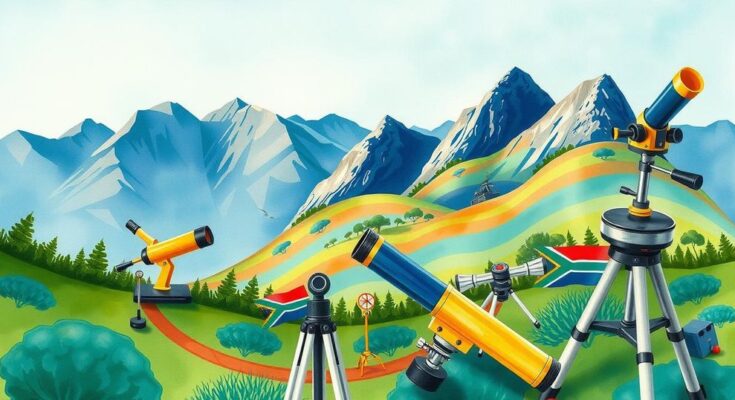A recent survey in South Africa and Germany explored public expectations of visible scientists. Despite some scientists being recognized, over half of respondents could not name any living scientists. Public perception often associates scientists with notoriety or politics rather than scientific achievement. The survey indicates a shared expectation for transparency and engagement from scientists, highlighting opportunities for more diverse representation in scientific visibility.
A recent survey conducted in South Africa and Germany investigated public expectations of scientists who are visibly active in society. With scientific events frequently making headlines, it is vital for scientists to engage with the public, influencing science policy, shaping public opinion, and combating misinformation. Despite some scientists gaining recognition, the survey revealed that many remain largely unknown to the general public.
The study surveyed 1,000 respondents in each country, asking them to identify living scientists. Alarmingly, more than half did not provide any answer or indicated they could not remember. Respondents tended to recall deceased scientists or individuals unrelated to the scientific community, such as politicians or entrepreneurs. This highlights the public’s perception that any prominent figure discussing science can be regarded as a scientist.
Among the prominent figures mentioned was Wouter Basson, known for his controversial role during apartheid. His notoriety illustrates that public visibility can often be linked with controversy. Additionally, most living scientists recognized by respondents were health professionals who gained prominence during the COVID-19 pandemic, such as Christian Drosten and Linda-Gail Bekker. Overall, the survey underscored that visibility of scientists remains limited and inconsistent, despite evolving media landscapes.
When considering the expectations of visible scientists, respondents anticipated them to be credible, effective communicators with a commitment to the public good. Notably, the ambiguity of preferred traits, including gender and seniority, presents opportunities for underrepresented groups, such as younger or female scientists, to gain visibility.
The research indicates a shared understanding of scientists’ roles and responsibilities across both countries, suggesting a universal expectation of truthfulness, transparency, and evidence-based advocacy in science communication. Furthermore, the study is part of a larger effort looking into public trust in scientists and emphasizes the need for proactive engagement in policy-making processes.
For scientists seeking to enhance their public visibility, collaboration with media professionals or participation in science communication resources can prove beneficial. Engaging in such initiatives may enable them to amplify their presence and influence within society.
The survey highlights a pressing need for scientists to engage more effectively with the public, enhancing their visibility and fostering trust. Despite some visibility among certain scientists during significant events, the general public remains largely unaware of contemporary scientists. There is a crucial demand for clear, evidence-based communication and proactive public engagement, offering an avenue for scientists of diverse backgrounds to become leaders in scientific discourse.
Original Source: theconversation.com




